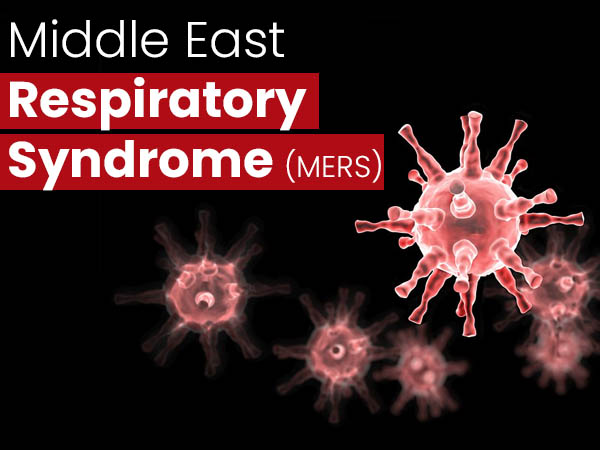Just In
- 59 min ago

- 9 hrs ago

- 11 hrs ago

- 12 hrs ago

Don't Miss
- Movies
 After Dalljiet Kaur-Nikhil Patel, Kundali Bhagya Star To DIVORCE Actress-Wife After 2 Yrs Of Marriage? DEETS
After Dalljiet Kaur-Nikhil Patel, Kundali Bhagya Star To DIVORCE Actress-Wife After 2 Yrs Of Marriage? DEETS - News
 Delhi Police Joins 'Look Between Your Keyboard' Trend, Gives Witty Driving Warning
Delhi Police Joins 'Look Between Your Keyboard' Trend, Gives Witty Driving Warning - Sports
 DC vs GT IPL 2024: Why Shubman Gill Held Back Spinner R Sai Kishore Till 19th over?
DC vs GT IPL 2024: Why Shubman Gill Held Back Spinner R Sai Kishore Till 19th over? - Travel
 Escape to Kalimpong, Gangtok, and Darjeeling with IRCTC's Tour Package; Check Itinerary
Escape to Kalimpong, Gangtok, and Darjeeling with IRCTC's Tour Package; Check Itinerary - Finance
 DCB Bank Q4 Results: PAT Grew 9% To Rs 156 Cr, NII Jumps 4.5%; Dividend Declared
DCB Bank Q4 Results: PAT Grew 9% To Rs 156 Cr, NII Jumps 4.5%; Dividend Declared - Technology
 OPPO Find X7 Ultra Camera Deep-Dive: Pushing the Boundaries of Photography on a Smartphone
OPPO Find X7 Ultra Camera Deep-Dive: Pushing the Boundaries of Photography on a Smartphone - Education
 MP Board Class 10th, 12th Results 2024, Know Alternative Ways to Check Your Result
MP Board Class 10th, 12th Results 2024, Know Alternative Ways to Check Your Result - Automobiles
 Aston Martin Vantage Launched In India At Rs 3.99 Crore
Aston Martin Vantage Launched In India At Rs 3.99 Crore
Middle East Respiratory Syndrome (MERS): Causes, Symptoms, Diagnosis And Treatment
Coronavirus is a large family of viruses that cause severe illness. In 2003, the first known illness caused by a coronavirus- Severe Acute Respiratory Syndrome (SARS) was reported in China. A second outbreak Middle East Respiratory Syndrome (MERS) occurred in 2012 in Saudi Arabia. In this article, we will discuss the causes, symptoms, diagnosis and treatment of MERS.
The MERS outbreak occurred at the end of November 2019 in Saudi Arabia. A total of 2494 Middle East Respiratory Syndrome (MERS) cases were confirmed, including 858 deaths globally; 2102 confirmed cases, including 780 deaths were reported from Saudi Arabia, as per the data by the World Health Organization (WHO).

According to the American Lung Association, more than 20 countries have reported cases of MERS.
What Is Middle East Respiratory Syndrome (MERS)
Middle East Respiratory Syndrome, also called MERS-Coronavirus (MERS-CoV) is a viral illness that severely infects your lungs. It is caused by a virus that belongs to the coronavirus family [1].


Causes Of Middle East Respiratory Syndrome (MERS)
MERS-CoV is a zoonotic virus, meaning it can spread from animals to humans. Exposure to camels or camel products were the source of MERS-CoV infection in humans. The presences of antibodies to the virus have been found in camels in Saudi Arabia, Egypt and Qatar [2].
MERS-CoV is transmitted easily when a person comes in close contact with an infected camel. The virus can enter the human body through air or by the consumption of raw camel milk or uncooked camel meat.

Symptoms Of Middle East Respiratory Syndrome (MERS)
- Shortness of breath
- Sore throat
- Fever
- Cough with or without blood
- Diarrhoea
- Vomiting
- Muscle pain
- Stomach pain
In severe cases, patients with MERS-CoV may develop pneumonia and may experience kidney damage, difficulty in breathing, high fever and even death.


Incubation Period Of Middle East Respiratory Syndrome (MERS)
The symptoms of MERS develop within 2-14 days after being exposed to the virus.
Risk Factors Of Middle East Respiratory Syndrome (MERS) [3]
- People with underlying health conditions such as diabetes, heart disease and chronic lung disease
- People with weakened immune systems
- Older people
- People who are taking immunosuppressants

Diagnosis Of Middle East Respiratory Syndrome (MERS)
The doctor will physically examine you and ask about your symptoms and your recent travel history. Then for diagnosis, samples will be taken from the patient's respiratory tract. Polymerase chain reaction testing (RT-PCR testing) is a diagnostic test that confirms the presence of MERS-CoV in the body [4].
Blood tests, chest X-ray, lung secretion test and kidney function tests can also help determine if a person has been infected or not.

Treatment Of Middle East Respiratory Syndrome (MERS)
There is no specific treatment or vaccine to cure MERS-CoV, however, most patients with mild symptoms can recover with the help of medications. They should be isolated to prevent the spreading of the disease. In severe cases, patients may have lung failure [5].
Prevention Of Middle East Respiratory Syndrome (MERS)
- Wash hands frequently with soap and water for at least 20 seconds.
- Wash fruits and vegetables properly before eating.
- Avoid consuming undercooked meat and food prepared in unhygienic conditions.
- Avoid close contact with people who develop an acute respiratory illness.
-
 healthCOVID Surge In India: Do You Need A COVID-19 Booster Shot?
healthCOVID Surge In India: Do You Need A COVID-19 Booster Shot? -
 disorders cureCommon COVID Symptoms In Fully Vaccinated Individuals: What You Should Know
disorders cureCommon COVID Symptoms In Fully Vaccinated Individuals: What You Should Know -
 wellnessMild COVID Linked To Life-Threatening Blood Clots, Increased Risk Of Cardiovascular Disease; Study
wellnessMild COVID Linked To Life-Threatening Blood Clots, Increased Risk Of Cardiovascular Disease; Study -
 wellnessCOVID-19 Variants In India: New COVID Variant May Pose Threat To Elderly People
wellnessCOVID-19 Variants In India: New COVID Variant May Pose Threat To Elderly People -
 basicsCovid-19 Linked To Early Onset Of Periods: What You Need To Know
basicsCovid-19 Linked To Early Onset Of Periods: What You Need To Know -
 wellnessCOVID XBB Variants Of Omicron In India: What You Should Know
wellnessCOVID XBB Variants Of Omicron In India: What You Should Know -
 disorders cureNew Omicron Subvariant BQ.1 Detected In Maharashtra: What You Should Know
disorders cureNew Omicron Subvariant BQ.1 Detected In Maharashtra: What You Should Know -
 disorders cureOmicron BF.7 In India, Risk Of Fresh Wave During Diwali: What You Should Know
disorders cureOmicron BF.7 In India, Risk Of Fresh Wave During Diwali: What You Should Know -
 wellnessCoronavirus Residues Might Be Causing Long COVID: New Study
wellnessCoronavirus Residues Might Be Causing Long COVID: New Study -
 wellnessCentury-Old TB Vaccine Could Be Effective Against Covid-19 And Other Infections: New Study
wellnessCentury-Old TB Vaccine Could Be Effective Against Covid-19 And Other Infections: New Study -
 disorders cureCovid-19 Patients At Risk Of Neurological & Psychiatric Conditions Two Years After The Infection: New Study
disorders cureCovid-19 Patients At Risk Of Neurological & Psychiatric Conditions Two Years After The Infection: New Study -
 wellnessCOVID In Smokers: An Expert Explains
wellnessCOVID In Smokers: An Expert Explains


 Click it and Unblock the Notifications
Click it and Unblock the Notifications



